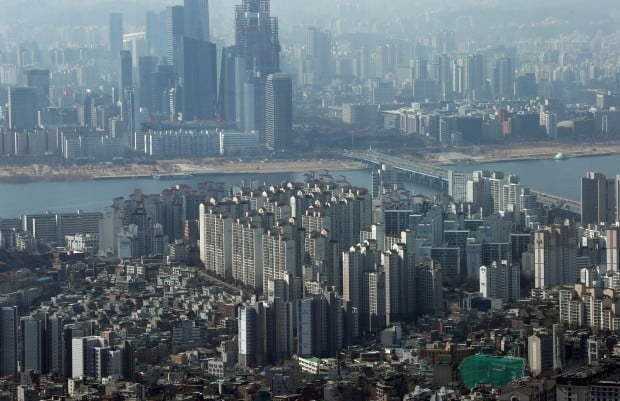 |
(Yonhap) |
South Korea is forecast to climb up three notches to ninth in global gross domestic product rankings this year, despite its negative growth of 3.3 percent in the second quarter, data showed Monday.
Asia’s fourth-largest economy is likely to see 1.8 percent decline in its nominal GDP to reach $1.54 trillion this year on the condition that the country circumvents a second wave of the coronavirus, according to data from Organization for Economic Cooperation and Development. The OECD -- a forum of 37 mostly advanced nations -- has released nominal GDP growth rates for its member states along with nine non-OECD countries, including China.
The estimated value is the ninth-largest among the surveyed countries, up three notches from 12th place in the previous year. In this regard, South Korea will take over ninth spot from Brazil, which is projected to slide to 12th this year. The Latin American country has suffered from all-time low currency rate and fast rising inflation rate due to the coronavirus pandemic, the OECD said.
South Korea’s nominal GDP is also likely to outpace some major economies, including Canada (10th), Russia (11th), which are expected to remain on the same spot as the previous year.
The top ranker would be the United States with its nominal GDP for this year estimated at $20.20 trillion, followed by China with $13.83 trillion, Japan with $4.85 trillion, Germany with $3.56 trillion, India with $2.72 trillion, Britain with $2.45 trillion, France with $2.38 trillion and Italy with $1.73 trillion, data showed.
Nominal GDP, or current dollar GDP, is a measure of the value of all final goods and services produced within a country at current market prices. Meanwhile, real GDP indicates the total value of a country’s economic production that has been adjusted for price changes like inflation, which is normally used to calculate economic growth.
Despite the uptick in the global GDP ranking, the country’s gross national income -- a measure of the total amount of money earned by a nation’s people and businesses used to track a society’s living condition -- could drop below $30,000 or to the level before 2017, when the figure first rose above the line.
The won-dollar exchange rate has been on a steep rise to surpass 1,200-mark in recent months, officials said. Projections over negative economic growth as well as high volatility in the local financial market may attribute to the fall of the GNP figure, officials said.
By Choi Jae-hee (
cjh@heraldcorp.com)







![[Today’s K-pop] Blackpink’s Jennie, Lisa invited to Coachella as solo acts](http://res.heraldm.com/phpwas/restmb_idxmake.php?idx=644&simg=/content/image/2024/11/21/20241121050099_0.jpg)
